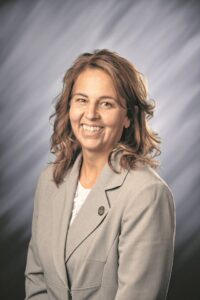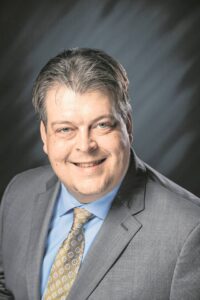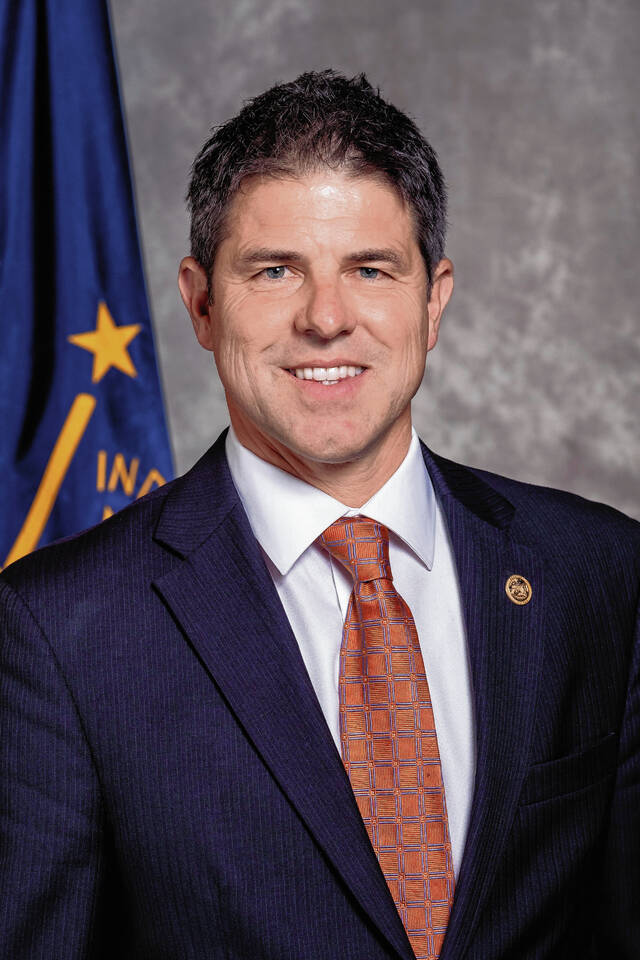State lawmakers are preparing for a packed session that will feature bills focused on vaccine mandates, reducing regulations and updating current laws, legislators say.
The 2022 short session of the Indiana General Assembly is set to begin Jan. 4, and the No. 1 priority in the House of Representatives is ending Gov. Eric Holcomb’s COVID-19 public health emergency. House Bill 101, which would end the emergency, would authorize several administrative actions that would allow Indiana to continue to receive federal emergency funding and take aim at vaccine mandates. The bill would remove the ability of employers to decide whether to grant religious exemptions, instead allowing any worker to request a religious exemption to a vaccine mandate and automatically get one without any additional questions, according to the Indianapolis Business Journal.
The House Employment, Labor and Pensions Committee took public testimony on the proposal Dec. 16 in advance of lawmakers reconvening. Many Hoosiers testified in support of the bill, but some Indiana doctors and health experts warned that the Republican-backed proposal aimed at limiting workplace COVID-19 vaccination requirements would hurt efforts to stem the illness as the state’s hospitals are strained with their highest-ever overall patient counts, the IBJ reported.
More than 50 House Republicans — and no Democrats — signed onto the bill authored by State Rep. Matthew Lehman, R-Berne, the IBJ reported. Three of Johnson County’s representatives in the Indiana House — Michelle Davis, Chris May and John Young — signed on as co-authors of the bill.
State Rep. Michelle Davis, R-Whiteland, said it will help Hoosier workers, especially those who may work at small businesses. Constituents in Davis’ district are ready for the state of emergency to end, she said.
Many of Indiana’s largest business and medical associations — including the Indiana State Medical Association — have opposed restrictions on businesses mandating vaccines, according to the IBJ. Aspire Johnson County, the county’s chamber of commerce, plans to advocate for the freedom of businesses to create health and safety standards that work for them. Employers, Aspire says, are equipped and informed to decide how health and safety guidance best fit their businesses, employees and customers, the chamber said in a news release.
Changes proposed for schools
In both chambers, lawmakers are having conversations about issues such as transparency among K-12 schools, and legislation may be coming to deal with it, both Davis and State Sen. Rodric Bray, R-Martinsville, said.
For the past few months, Davis has been talking with parents and schools about making them more transparent by having parents more involved, Davis said.

Right now, parents are more involved in education, and the goal of the legislation is to help schools become more transparent about curriculum and what goes on in schools by having educators and parents work together, she said.
Davis is also working on an adult education bill, which is important to her as she was adult education director at Central Nine Career Center. The bill will hopefully give more opportunities to seniors in high school who may be struggling to fulfill graduation requirements, she said.
She is also working on two other bills that involve scholastic athletics. The first promotes fairness in women’s sports, and she has been doing research and talking to experts about how to improve fairness, she said.
The other bill relates to high school sports broadcasting. Davis received a request from a group at Center Grove earlier this year asking about ways to help when a visiting team’s broadcasting partners are denied broadcasting access from the home team. Other schools across the state have encountered the same issue, Davis said.
“Whether it’s space-related or ticket-related, I don’t know,” she said. “I’m looking into it because if we’re just not allowing a broadcasting club or class to learn that skill, then I think they’re being denied some opportunities.”
There has also been talk in the House about making school board elections partisan, and some representatives have made it a priority, said State Sen. Greg Walker, R-Columbus. Walker is not sure how making the positions partisan would help parents, he said.
“Rather than mandating it from a state level, local jurisdictions should be able to decide that for themselves,” Walker said.
Other priorities on the table
Lawmakers plan on tweaking the state’s automatic tax refund law.
Gov. Eric Holcomb earlier this month announced a plan which would result in taxpayers receiving $125 refund payments from the state’s growing budget surplus. Officials had previously announced in July that stronger-than-expected tax collections following the pandemic recession would trigger Indiana’s automatic taxpayer refund process, according to the Associated Press.
Holcomb’s plan would make more people eligible for what would be direct payments from the state rather than a credit on their state tax returns submitted next year. The plan, which would need approval from lawmakers, would result in payments to an estimated 4.3 million taxpayers, the AP reported.
Lawmakers have made it a priority, and plan to tweak it toward the beginning of the session. Changes include making sure the refund goes out in 2022, not in 2023. Part of the surplus will also be used to pay down public employees’ retirement funds, Bray said.

Reducing regulations for farmers who want to sell food directly to consumers is a bill Walker is looking forward to discussing when the session reconvenes.
There have been some obstacles, but he believes lawmakers have found a compromise with the Indiana Department of Health and food producers to offer Hoosiers more opportunities to get food directly from the source, he said.
Late State Rep. Steve Davidson, R-Salem, had worked on the bill for the past several years before he passed away from cancer in September. Walker and Davidson had discussed the bill over the years, Walker said.
“He will be a partner we will miss this year,” he said.
Changing the status quo
State Rep. John Young, R-Franklin, is working on legislation with the Indiana Attorney General’s office to help protect public expression, and more specifically make the state’s anti-SLAPP laws more uniform.
The laws are intended to prevent people from using courts and potential lawsuit threats to intimidate people who are exercising their First Amendment rights.

Young is also working on a bill which would shift some of the financial responsibility for private railroad crossings away from property owners and to rail companies after talking with a local constituent. Right now, if a rail company wanted to upgrade its tracks on private property, they could shift the cost to the property owner. Some of the laws regarding private crossings have not been touched since the late 1890s — more than a century ago — he said.
Walker’s other priorities for the upcoming session do not necessarily have to do with specific legislation, but rather asking big questions about the legislative process.
“One of my priorities is not to react in a knee-jerk action,” Walker said. “Some things being pursued this year are reactions to current situations, and the laws we have in place are able to deal with the current dilemmas.”
The legislative process shouldn’t go lightening speed. Businesses count on stability to help them plan ahead, he said.
“Incremental changes (in the law) are OK, but wholesale changes mean we’re going in the wrong direction,” Walker said. “Smart people in the past made the laws. We shouldn’t be as quick to change them.”
The Associated Press and Indianapolis Business Journal contributed to this report.





